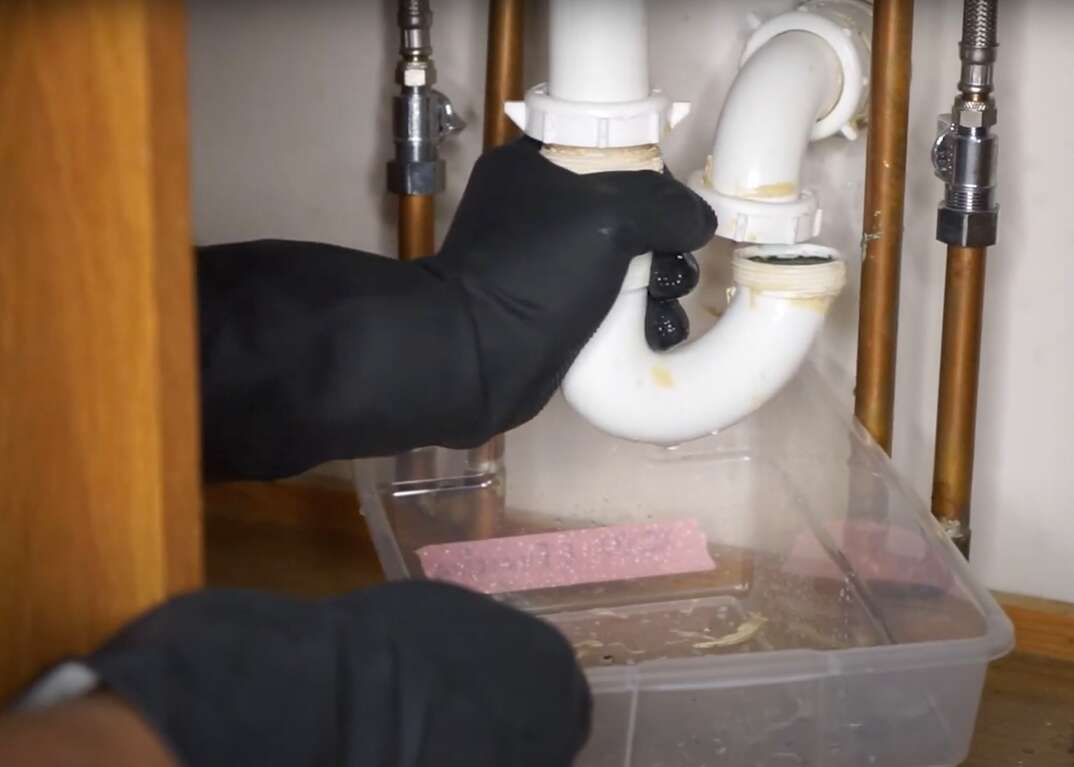- AppliancesElectriciansHVACLandscapingLocksmithPest ControlPlumbingRenovationRoofingT V RepairAll Home Improvement
- Car AccidentClass ActionCorporate LawCriminal DefenseDivorce LawEmployment LawFamily LawFinancial LawLegal AidMedical Injury LawyersMedical MalpracticeReal Estate LawWater Fire RestorationAll Legal
- InvestmentRetirementAll Finance
- Animal InsuranceAutoGeneral InsuranceHealth PolicyHome RentersAll Insurance
- DentalHealth SpecialistsAll Medical
- Animal CareVeterinaryAll Pets
- Auto GlassTowingAll Automotive
Why Does My Bathroom Smell Like a Sewer?

Bathroom activities aren't exactly known for smelling like roses, but sometimes, things get a lot smellier than usual. A sewer smell in a bathroom is more than just an annoyance — it could be a sign of an unpleasant situation brewing.
Don't try to cover up the sewage smell in the bathroom with that apple cinnamon air freshener on the back of the toilet. Dig deeper to find the source of the smell and deal with it head-on.
That sewer smell in the bathroom could come from several different sources. Check out the following possible causes and what to do about each one.
1. Clogged Drains
Clogs in your shower or toilet could lead to bad smells in your bathroom. Clogs can cause bacterial growth or leaks that contribute to bad odors. The drain doesn't have to be completely blocked to cause a stink. Partial clogs can also cause the problem. Some clogs are easy to clear with a plunger or plumbing snake. It's best to avoid chemical drain cleaners, which are dangerous to your health and could damage your plumbing. If you can't easily clear the clog yourself, call a plumber to help.
2. Bacterial Growth
Bacteria growing in your sewer lines can reach your bathroom under ideal growth conditions. Your toilet is usually the victim of the bacterial growth. Putting bleach in the toilet tanks and bowl and flushing it several times can help kill the bacteria.
3. P-Trap Issues
Showers, sinks and other bathroom fixtures feature P-traps in the drain lines. They're curved to hold a small amount of water. That water keeps sewer gases from coming into your home.
But if that water dries out, the sewer gases can flow freely, leaving your bathroom with an unpleasant odor. This usually happens in a bathroom that doesn't get much use, giving the water in the P-trap time to evaporate. The simple solution is to pour a little water down the drains occasionally. In bathrooms that get regular use, this usually isn't necessary.
You could also smell bad odors if a P-trap is broken, which could cause water leaks and damage. Call a plumber to check on and replace the P-trap if you suspect this is the issue.
4. Sewer Line Problems
Sometimes, the sewage smell in a bathroom is due to issues in the sewer line. If the pipe is clogged, the sewer can build up and back up into your home. This can happen if tree roots grow in the sewer line or simply from years of buildup inside the pipe. Your bathroom might also smell like sewer gas if the sewer line deteriorates, collapses or otherwise breaks. After a heavy rain, sewer backflow is a possibility, causing the sewage to flow back toward your home instead of away from it.
All sewer issues are best left to a plumber. The pathogens in sewage are dangerous, and the work is dirty. Sewer repairs typically require professional equipment and the expertise of a pro. A plumber can perform a camera inspection of your sewer system to determine what's wrong and come up with the best solution. If sewer backflow is a regular problem, a plumber can install a backflow valve.
More Related Articles:
- Calling a Plumber? Here Are the 6 Most Common Plumbing Jobs and How Much They Cost
- 6 Ways to Try to Unclog Your Sink Before You Call a Plumber
- What's in My Plumber's Van?
- Here's How Much It Costs to Remodel a Bathroom
- 6 Tips for Hiring a Plumber
5. Septic Tank Troubles
If your home uses a septic tank instead of a sewer system, you could be dealing with a full tank or other problems with the septic system. In addition to the smell, you might notice bubbling noises from your plumbing fixtures, and your toilets might flush slowly. Call a reliable septic company to check on the tank and pump it or perform repairs if needed.
6. Damaged Toilet Wax Ring
Toilets have wax rings underneath to create a seal where the toilet connects to the drain pipe. You usually don't have to worry about it, but if the wax ring becomes damaged, it can allow sewer gases to enter your bathroom. The fix is replacing the wax ring, which requires you to completely remove your toilet. Handy homeowners can usually complete the work themselves. However, you'll need to drain the water completely, and the toilet could get broken. You may want to call a plumber for this fix to avoid the hassle.
7. Damage to Vent Pipes
You might not realize it, but your plumbing system relies on vent pipes to keep things working properly. If a vent gets damaged or clogged, it could force sewer gases into your bathroom through your fixtures. Your plumbing vent pipes run through the ceiling and out your roof. Because of the location, vent pipes are something a professional plumber should handle. The vents also have to be installed and operating just right to be effective.
Elocal Editorial Content is for educational and entertainment purposes only. Editorial Content should not be used as a substitute for advice from a licensed professional in your state reviewing your issue. Systems, equipment, issues and circumstances vary. Follow the manufacturer's safety precautions. The opinions, beliefs and viewpoints expressed by the eLocal Editorial Team and other third-party content providers do not necessarily reflect the opinions, beliefs and viewpoints of eLocal or its affiliate companies. Use of the Blog is subject to the
Website Terms and Conditions.The eLocal Editorial Team operates independently of eLocal USA's marketing and sales decisions.

